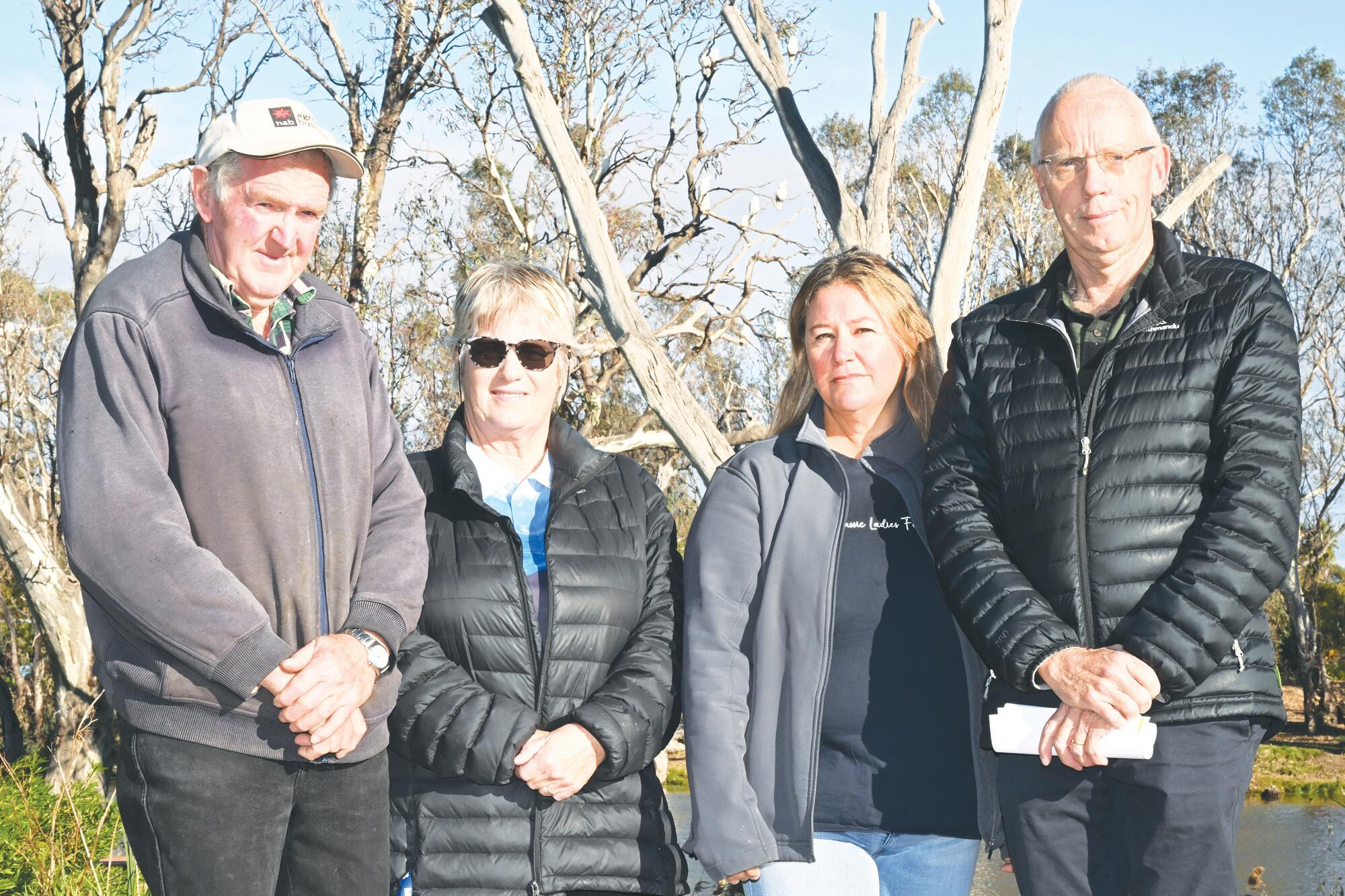General News
27 May, 2024
Tree killer: corella cull cash call
A NEW State Government cash pot to manage destructive corellas is in sight of campaigners watching mangled Loddon River gums die. Long-billed corellas have forced other native birds out of habitat at Bridgewater as they strip and destroy more trees...

A NEW State Government cash pot to manage destructive corellas is in sight of campaigners watching mangled Loddon River gums die.
Long-billed corellas have forced other native birds out of habitat at Bridgewater as they strip and destroy more trees along the river.
“We used to have galahs, rosellas, lorikeets and even ducks ... they’ve been bullied out of food and where they live. Their habitat has been taken over,” said Chris Wattie.
Chris and long-time campaigners Graham Morse and Shannon Brown want new corella management grants used to cull thousands of long-billed corellas that have invaded the river instead of funding more studies.
“I don’t understand how protection of birds seems to override anything else. It seems crazy that it’s okay to have permanent damage to trees,” said Shannon who is president of Bridgewater on Loddon Development that has the issue as a permanent agenda item at meetings.
“Hundreds and thousands of these birds are doing damage to properties, buildings and playgrounds that can be repaired but the trees cannot be replaced.
“These birds are smart. They have learned our tactics quickly and have made Bridgewater their playground.”
Former Wedderburn school teacher Rob Bray retired to Bridgewater a year ago and compares increasing tree damage to what he had seen on the Campaspe River at Rochester.
“When you walk along the (Loddon) river, you see just how much damage there has been here,” he said.
Mr Morse said: “They don’t eat the trees, they just destroy them.”
Christine said: “The long-billed corella is an aggressive bird and has taken over from the short-billed corella.”
Short-billed corellas are a protected species but she said that “in every 100 birds, there would only be one or two short-billed birds.”
Christine said: “Anything in plague proportions is not good for the environment and the ecosystem.”
BOLD has been campaigning for more than a decade for action to reduce corella numbers and protect river trees.
The Government’s corella management strategy “promotes a living with wildlife approach to encourage positive attitudes to corellas, as part of a broader strategy for living with wildlife in Victoria”.
But Mr Morse said bureaucracy had hampered earlier local attempts to control numbers.
He said combined action was needed by government, council and community to tackle the Bridgewater problem.
Mr Morse said locals had tried “everything we are allowed to do” over the past decade in a bid to control corella numbers.
“The best use of this new money would be to organise a shoot to cull them.”
Christine said: “The numbers are now too great for a natural solution. They used to come in only at summer. Because the numbers are now so big, they can’t go back to other habitat and they stay here.
“The only way to fix the problem is to reduce the numbers.”
Mr Bray said: “You see corellas stripping trees in the morning, Even trees I have planted myself have been stripped.”
Grants are available to:
Aid mitigation in managing corella impacts on community.
Evaluate effectiveness of management options, with a focus on utilising non-lethal control techniques and trialling or researching new methods.
Better evaluation of the financial impacts of corella damage and associated management costs.
Review of the social, economic and environmental implications of management practices.
The Government wants applications for projects that protect animal welfare, allow healthy and sustainable wildlife populations and habitat, reduced impact of wildlife on environmental, social, cultural and economic assets and values and for communities valuing wildlife and contributing to wildlife management.
Mr Morse said:” We’re being beaten by bureaucracy.